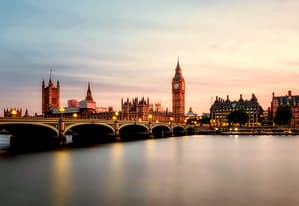Prior to the Roman invasion in 43 AD, England was mainly inhabited by the Celtic people, a civilization known for their magnificent jewelry. On the arrival of the Roman armies, the Celts were pushed back to Wales and the region of England became a Roman province for 400 years, with remnants of the occupation still scattered around the UK.
By the 10th century, England was unified into one kingdom, while the Picts had joined the Irish settlers in the far north, forming Scotland. In 1066, England was conquered by William, Duke of Normandy, subsequently King William of England. Norman-French culture was introduced and assimilated, and later English kings completed the conquest of Wales. Scotland, however, remained free and a continuing thorn in the side of English rulers.
The Reformation under King Henry VIII saw the UK breakaway from the Roman Catholic Church and the rise of Protestantism, with new settlers granted land in Ireland, displacing Irish Catholics, and the English Civil War in the 17th century briefly overthrowing the monarchy. England’s naval power bloomed, and North America saw its first English migrants. Colonial exploitation and slave-trading followed, and after the loss of America, British interests turned to India.
The Industrial Revolution permanently changed the face of Britain and ensured the country’s world dominance in the 19th century with soaring economic growth. WWI resulted in the deaths of 2.5 million soldiers and a huge national debt, followed by the Great Depression caused hardship and major social unrest. Then came WWII, in which the UK was bailed out by the Marshall Act and Canadian loans.
Post-war UK saw massive changes as its empire dissolved and service industries took the place of traditional manufacturing. Mass immigration overturned the traditional social norms and brought new ideas and flavors. The introduction of the Welfare State and the National Health Service ensured a safety net for those in poverty, and the country joined the European Union in 1973, a controversial move for many Britons.
The present-day culture in the UK rests mainly on its artistic achievements in the fields of dance, the visual arts, and music. London’s theater district is second only to Broadway, and its orchestras, opera and dance companies are among the best in the world. From the 1960’s onwards, the British movie industry won many international awards, while the modern music revolution spawned the international phenomenon of the Beatles and the Rolling Stones.
Post-WWII, UK cities and large towns have become increasingly multi-racial, necessitating major adjustments within its indigenous communities. Sports are a major part of British culture, with football and cricket the national games. The four nations which make up the UK each have their own distinctive cultures, folk tales, legends and a strong sense of nationalism and identity towards their own definitive heritage.

